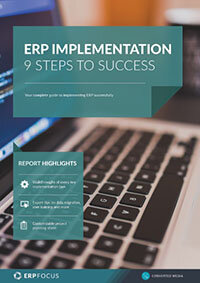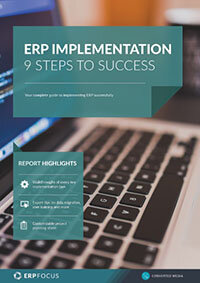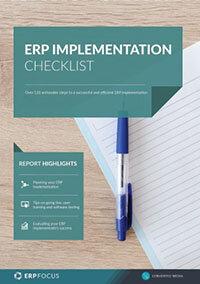4 Reasons Why Global ERP Implementation Isn’t for the Faint of Heart
ERP implementation is a huge challenge for any business. When your implementation is global, the challenge is a world more difficult. A few years ago I worked on an ERP implementation at ten manufacturing sites in only two countries. We had a team of 100 people full time for more than a year whilst barely scratching the surface of the meaning of the word global!
Global ERP Requires Complex Project Management
Think about only project management. You have a huge number of sites and each one is a mini project. You might have different legacy ERP systems to convert and each of those adds a layer of complexity. If the sites have different products or services, each one is yet another step more complex.
One response might be to use a really big implementation team and try to start everyone at the same time. The project is big and will take manpower but all at once it is completed. Whew!
Another response is to divide the ERP implementation into phases. You might work on all the sites on one continent as a project and then move to another continent. You could also divide by products or business lines. Sometimes it will make sense to divide the project up the other direction. Maybe get accounting implemented at all sites and then move to sales or purchasing and eventually have the whole enterprise on the same complete, global ERP.
There is not one right way. Whatever you choose, you are in for a lot of work over a long time so get rested now.
Global ERP Go-Live Requires Manpower in Droves
Eventually you get to global ERP go-live. It might be the one and only or the first of a series of dates. How do you support the effort? Your functional experts in finance, sales, engineering, etc. have been helping all along and these people will work through go-live too. But you have had four sales experts working with five offices so far. You want two experts at each office and that means recruiting six more short-term experts in this one domain.
Global ERP Implementation is a Legal & Language Minefield
Your experts are multilingual and many of the people at each site have a second language. You might have gotten along with each party using a second language. ERP Go-live is critical and you want a good supply of very fluent speakers at the sites and you need to cover every discipline. Not only do the experts need the right language but they also will need to be able to work legally in the country which means work visas and other hurdles to jump over.
I hope you aren’t reading this and planning to give your boss two weeks in the morning. Think of the big payoff just waiting ahead.
Free white paper

ERP Implementation: 9 steps to success
The 9 proven steps you should follow when implementing ERP

Featured white papers
-

ERP Implementation: 9 steps to success
The 9 proven steps you should follow when implementing ERP
Download -

ERP Implementation Checklist
Over 120 actionable steps to implementing a new ERP successfully
Download -

Manufacturing ERP Implementation Checklist
Over 70 actionable steps to rolling out new manufacturing ERP software
Download
Related articles
-

The case for multi-tier ERP implementations
Learn more about multi-tier ERP implementation and why you might need one
-

Secret KPI: Why Your ERP Implementation Team Matters More Than Software
Learn how Godlan ensures successful ERP implementation for manufacturers with proven strategies &...
-

An example ERP implementation team structure for your project
Learn about three key elements of an ERP implementation team and the individuals who contribute w...

